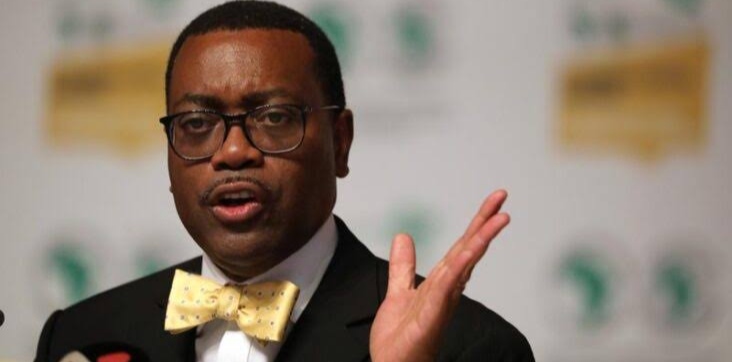By Chioma Iruke
President of the African Development Bank (AfDB) Akinwumi Adesina, has urged the Nigerian Government to put in more investment in the healthcare system of the nation, to the extent that the country can manufacture vaccines.
Adesina made the call while speaking at the Mid-Term Ministerial Performance Review Retreat in Abuja.
He said Africa must build its health system to cater for the current needs and that of the future, noting that “world class local and pharmaceutical industries can tackle therapeutic drugs and vaccines”.
While noting that “Nigeria must launch strategic investment for local vaccine production”, Adesina stated that the continent need not beg for vaccines, as it has the ability to produce its own vaccines.
He noted that Nigeria’s problem is not debt to GDP level, but debt servicing, as well as investment to secure growth.
He further stated that Nigeria need to fix the structure of the economy and address basic fundamentals.
On agriculture, Adesina decried Nigeria’s laxity in pursing agriculture effectively, although he noted that there are signs by the administration to improve the sector.
He further urged the government to boost food security, reduce the price of food and increase competitiveness.
Adesina advised the government to move revenue productivity from the non-oil sector with the appropriate and flexible market exchange rule that can enhance competition, and urged the government to prioritize the N15bn-a-year infrastructural financial innovation, as government alone cannot provide for the economy, thus private sector must be given more incentives.
While applauding the tax credit initiatives of the government, Adesina notedthat the African Free Trade Area presented more opportunities for African countries to partner, adding that Africa would generate $6.7tn by 2030.
On the state of Nigeria’s Port, Adesina called for total modernisation, noting that the Ports are not just limited to revenue generation, but also to ease transport. He cited Morocco as an example, noting that the country in 2020 exported about $8bn worth of goods.
Speaking further, he called for more youth inclusiveness, hampering on the need for investment in research, as the country seeks to harness gas reserves.
On his part, Vice President Yemi Osinbajo noted that the Covid-19 pandemic had much impact on the country’s economy with various declines in the transportation, hospitality, education, real estate, trade and construction sectors.
According to the Vice President, a small intermediary committee headed by the Finance Minister was established to examine the steps to be taken to fix the shocks encountered by the country. This, he said, birthed the Economic Sustainability Plan for a 12-month approach to the pandemic with an objective of providing health support, saving jobs, catering for unpaid workers and creating new ones.
Osinbajo added that a budget of N2.3trn was carved out for the plan which was sourced in various ways.
According to him, while the above mentioned sectors had experienced growth, challenges of poor investment inflows due to foreign exchange and security concerns abound.
He thus advised that the Ministry of Trade and Investment to live up to its duties and handle MSMEs and MDAs intervention. On the challenge of foreign exchange, he noted that demand management by the CBN needed to be revisited.




































